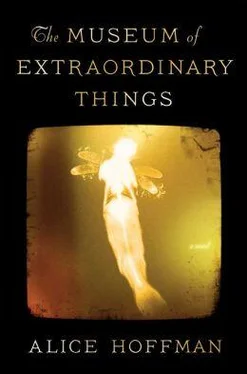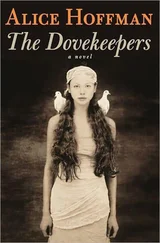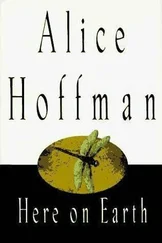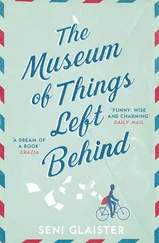I went back into the crowd and set up my camera stand. When I scanned the mob, I noticed several young men shouting and glaring in my direction. I heard the name I never used, and then I knew their taunts were directed at me. I turned and slinked away, convinced I had been marked. Those who’d known me in my other life saw me for who I truly was, Ezekiel Cohen, traitor, the boy who had not leapt into the river to rescue his own father.
Soon after that I was sent by the Tribune to photograph a rally at Cooper Union on Third Avenue. I was young, little more than twenty-one, and I thought I could express an opinion in such matters when working for the papers. I said I preferred crime scenes, which was true enough. I went so far as to declare I had a fever and might be ill, hardly the truth at all. But no one else was available, so I had no choice but to go, even though my guts churned. I knew it would be bad for me, and it was. I came upon several leaders of the Workmen’s Circle, an organization for the betterment of the workingman that was concerned with community and social justice, serving as a welfare agency, especially in times of tragedy. There among them, I spied my childhood companion, Isaac Rosenfeld. Unfortunately he spied me as well as I set up my camera.
“Here he is. The anti-Jew,” Rosenfeld called out, nodding to me. “I hear you’re Ed now. To some people at least.”
“I’m here to do a job,” I told him.
“To watch us? To stand outside of us? Maybe to judge us? You’re very good at that it seems. You don’t care what happens to anyone else, even your own people. What would your father think?”
“I don’t know what other men think,” I said. “That’s God’s business, not mine.”
Rosenfeld spat upon the ground. I didn’t react, though I suppose he wanted me to. He was a decent man and would not strike me first, but I didn’t give him the pleasure of hitting him. I merely took a photograph of the crowd that had gathered, Jews and Italians who worked in factories and wanted more for themselves and their families, basic rights at the very least. Rosenfeld’s father had worked with mine in the second factory where we’d found employment, and Rosenfeld and I had spent a portion of our boyhood together. We had once been friends, when such things were possible for me. I didn’t react when he shoved his hand in front of my camera’s lens. “Well at least you know what this man thinks,” he said. And yes, I knew. He despised me.
I kept the photograph of his hand and have it still. The lines of his palm are like a map to a country I cannot name. I kept the broken watch as well, stored in my pocket after Moses’s death. Soon after my run-in with Rosenfeld, I happened to pass a watchmaker’s shop on Houston Street. The sign proclaimed the shopowner could repair any timepiece. If stumped he would present a customer with a new gold watch at no cost whatsoever. The proposition sounded fishy, but I could hardly afford to have the watch fixed, so I went in to see what he could do. The watchmaker was working when I entered. He was an elderly fellow, and a sign informed me that his name was Harold Kelly. It was likely clear to him that I was a young man with a chip on my shoulder. I cared little about my appearance and wore a frayed blue jacket, baggy trousers, boots, a black cap with a brim. I kept my hair clipped to my scalp, as a convict newly released from prison might have. I suppose I looked ragged in every way, lanky and dark, headed for trouble. I had spent so much time photographing criminals, I may have taken on some of their airs. I assume Kelly thought I wasn’t a customer worth the bother. He ignored me until I placed the watch on his counter. He glanced at it, and as soon as he did, he stopped working so he could peer over his glasses at me.
“Yours?”
“Inherited,” I told him. I suppose that’s the way I thought of the watch, not as a stolen object but as a reward I deserved. From the skeptical look on the watchmaker’s face I could tell he thought it was much too good for the likes of me.
He picked it up, turned it over in his hand, and read the inscription. “ ‘To my dear son.’ ”
“I have a father,” I said, embarrassed by the sort of son I’d become, for I was dear to no one. I thought of Isaac spitting on the ground so he could let me know what he thought of me. The day after I’d stolen the watch I’d gone to sit beside him under a long table, where we did piecework, stitching pockets onto women’s shirts. We were only boys, but boys who knew too much of the world. When I opened my hand to reveal my take, his eyes had widened. “The owner’s son,” I’d whispered, not needing to say more. “Good,” Isaac had whispered back. “It’s what he deserves.”
The watchmaker removed his glasses and used an eyepiece to examine the watch further. “Made in London.” He showed me a hallmark I hadn’t noticed before, a leopard’s head. “That marks the city of origin.” Then beneath that mark, a crown with the number 22. “Pure gold. Excellent quality. Your father gave this to you? He must be quite wealthy.”
“You don’t need wealth to appreciate something beautiful.” I now feared this fellow Kelly might call the police on me, and therefore manage to keep the watch for himself. Over the years I had grown attached to it, as men grow attached to their miseries and their burdens.
The repairman took a tiny set of tweezers and opened the back of the watch, then went deeper into the cogs, fishing around. He came upon a cog that was stuck in place, which he removed and cleaned, then reinserted. Immediately the works began again. The sudden sound startled me, and I took a step away from the counter. Kelly nodded, fully understanding my reaction. “It’s alive,” he said. “A watch is like a man. You have to know how to approach it, and each one is unique. This one, for instance, has its own fingerprint.” Kelly tapped upon the back with just the right amount of pressure. A small circular panel slipped up to reveal a single blue stone. “Sapphire,” he informed me. “Your father truly does appreciate beauty. And of course there is your name in print for all eternity,” he said with a mocking tone.
A hidden inscription had been revealed, there below the stone.
“To Harry Block, on the occasion of his eleventh birthday.”
“It’s a fine watch, Harry.” The watchmaker smirked as he congratulated me. He had already guessed that wasn’t my name. In truth, I startled at the sound of it. “If you ever want to sell this watch, I’m an interested party. Or any other watch your father presents to you. Just bring it here and I’ll give you a fair price.”
I paid the fee for the repair with all the money I had at the time, and slipped the watch inside my pocket. Walking down Houston Street I remembered that Harry Block had told me his age, the same as mine, as if that had mattered and had somehow made us colleagues. He’d only had the watch for a brief time before I’d relieved him of it. At that point I had already been in possession of the timepiece for so long perhaps it did belong to me.
All the same, I began to look for the original owner. I did so without thinking, since finding people came easily to me. It was what I’d been trained for, and searching for the lost had become part of my soul. I couldn’t let things go, even when I should. I did as Hochman had always instructed, looked into my subject’s past. He insisted to the press that he used numerology and herbs to divine a man’s future and his dreams, but he told me that a man always revealed his own inner story in his actions and expressions. A man’s past deeds foretold his future, and allowed anyone with half a brain to divine the path he would take.
Читать дальше












